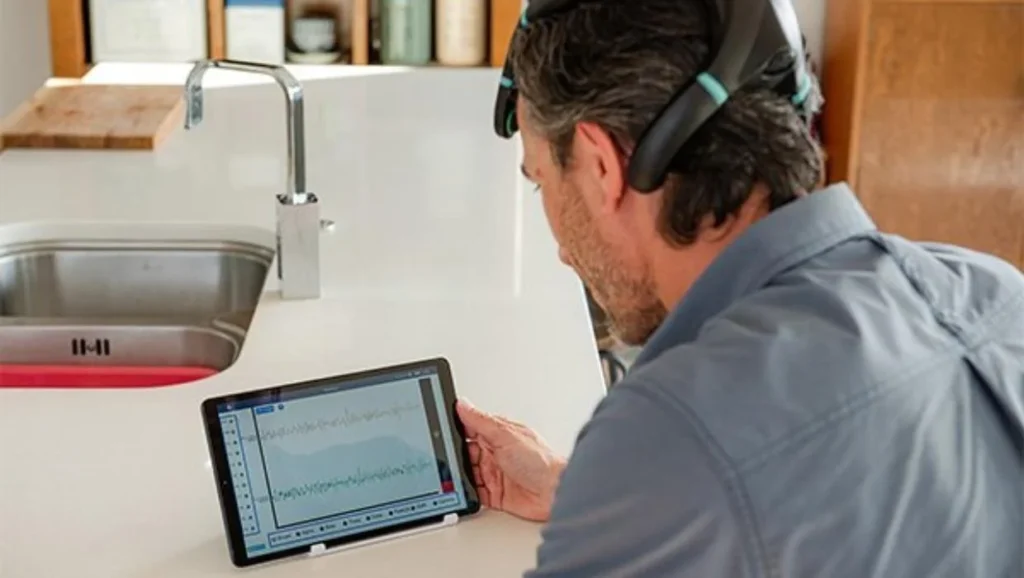/ Nov 04, 2025
Trending

An Auckland company that aimed to create non-invasive chronic pain treatment has been tipped into receivership by a UK-based shareholder and secured creditor.
Medical technology company Exsurgo went into receivership on June 9, placed there by Jersey-listed UK company Pinewood Investments, which had a 3.04% holding in the company.
Auckland’s Calibre Partners’ Neale Jackson and Daniel Stoneman were appointed joint receivers last week.
Exsurgo was started in 2015 by former chief executive Richard Little and current chief technology officer Faisal Almesfer. It went on to develop its Axon headset alongside AUT and Waitematā DHBs for an Auckland-based clinical trial in 2021.
Axon, a wearable electroencephalogram (EEG) headset, tracked real-time brain activity to identify pain signals in the brain for patients, and then displays those results on a patient’s phone. The system uses oral and visual stimuli to reinforce positive changes in the way patients handle pain.

While the technology underpinning the Axon has been around for decades, it has traditionally been a large and cumbersome piece of kit. The Axon headset minaturised the existing technology, could be used in a patient’s home and monitored from afar by medical staff, and would have cost around $2000 per headset.
Axon was rolled out across the US, UK and UAE following clinical trials that kicked off in 2020.
The company ran a trial in the UK in 2020 where three-quarters of participants reported a reduction in pain of at least 30%. Due to the pandemic, the trial was performed virtually. The 16-patient trial showed improvements after the eight weeks of neurofeedback training that were sustained over six months.

That led to a New Zealand clinical trial in 2021. According to AUT, the Aotearoa trial was the world’s biggest EEG neurofeedback clinical trial to manage chronic pain. More than 100 people who suffered from chronic pain wore an Axon headset for 30 minutes a day over several weeks “to retrain how their brain perceives and responds to pain”, a process called neuromodulation.
Exsurgo spent $15m to build Axon and also received a $300,000 grant from Callaghan Innovation in its early stages.
UAE-based tech startup incubator Hub71 injected about $17.4 million into the company in 2023. The Abu Dhabi Ministry of Health said the technology showed “very promising” results at the time, but it had not yet been approved by the US Food and Drug Administration (FDA).
Overall the company made nine submissions for FDA approval since 2021, with the most recent filing made in January this year.
Little departed as one of the company’s directors last year but remained its majority shareholder with almost 35% of the company. Almesfer, as well as investors Yalman Khan in the UAE, David Ross in New Zealand, and Michael Wombwell in the UK, were its current directors, with Ross serving as board chair.
The company did not respond to requests for comment. Receivers Jackson and Stoneman could not be reached.
An Auckland company that aimed to create non-invasive chronic pain treatment has been tipped into receivership by a UK-based shareholder and secured creditor.
Medical technology company Exsurgo went into receivership on June 9, placed there by Jersey-listed UK company Pinewood Investments, which had a 3.04% holding in the company.
Auckland’s Calibre Partners’ Neale Jackson and Daniel Stoneman were appointed joint receivers last week.
Exsurgo was started in 2015 by former chief executive Richard Little and current chief technology officer Faisal Almesfer. It went on to develop its Axon headset alongside AUT and Waitematā DHBs for an Auckland-based clinical trial in 2021.
Axon, a wearable electroencephalogram (EEG) headset, tracked real-time brain activity to identify pain signals in the brain for patients, and then displays those results on a patient’s phone. The system uses oral and visual stimuli to reinforce positive changes in the way patients handle pain.

While the technology underpinning the Axon has been around for decades, it has traditionally been a large and cumbersome piece of kit. The Axon headset minaturised the existing technology, could be used in a patient’s home and monitored from afar by medical staff, and would have cost around $2000 per headset.
Axon was rolled out across the US, UK and UAE following clinical trials that kicked off in 2020.
The company ran a trial in the UK in 2020 where three-quarters of participants reported a reduction in pain of at least 30%. Due to the pandemic, the trial was performed virtually. The 16-patient trial showed improvements after the eight weeks of neurofeedback training that were sustained over six months.

That led to a New Zealand clinical trial in 2021. According to AUT, the Aotearoa trial was the world’s biggest EEG neurofeedback clinical trial to manage chronic pain. More than 100 people who suffered from chronic pain wore an Axon headset for 30 minutes a day over several weeks “to retrain how their brain perceives and responds to pain”, a process called neuromodulation.
Exsurgo spent $15m to build Axon and also received a $300,000 grant from Callaghan Innovation in its early stages.
UAE-based tech startup incubator Hub71 injected about $17.4 million into the company in 2023. The Abu Dhabi Ministry of Health said the technology showed “very promising” results at the time, but it had not yet been approved by the US Food and Drug Administration (FDA).
Overall the company made nine submissions for FDA approval since 2021, with the most recent filing made in January this year.
Little departed as one of the company’s directors last year but remained its majority shareholder with almost 35% of the company. Almesfer, as well as investors Yalman Khan in the UAE, David Ross in New Zealand, and Michael Wombwell in the UK, were its current directors, with Ross serving as board chair.
The company did not respond to requests for comment. Receivers Jackson and Stoneman could not be reached.